Kerendia 10mg Tablet is a medication containing an active component called Finerenone. It falls under the category of nonsteroidal mineralocorticoid receptor antagonists (MRAs). Its purpose is to address conditions associated with imbalanced levels of mineralocorticoid hormones, specifically aldosterone, within the body. The primary usage of this medication is for the treatment of chronic kidney disease (CKD) in individuals diagnosed with type 2 diabetes. It aids in lowering the likelihood of kidney disease advancement and also mitigates the risk of cardiovascular incidents, such as heart failure, in these patients.
Kerendia 10mg Tablet should not be used in individuals with known hypersensitivity or allergy to the drug or its components. It can increase the potassium levels in the blood. It should be used cautiously or avoided in patients with hyperkalemia or those already taking medications that can increase potassium levels (such as potassium-sparing diuretics or potassium supplements). This medication can affect the balance of electrolytes in the body. Monitoring potassium, sodium, and other electrolyte levels may be necessary during treatment. Kerendia 10mg Tablet may affect blood glucose levels, especially in patients with diabetes. If a person is undergoing surgery, it is important to inform the healthcare team about using Kerendia 10mg Tablet, as it may need to be temporarily discontinued before the procedure.
Therapeutic Effects of Kerendia 10mg Tablet 14's
Pregnancy
Kerendia 10mg Tablet may cause harm to an unborn baby. Inform your doctor if you are pregnant or planning to get pregnant before taking it. The doctor will explain the potential risks and benefits.
Breast Feeding
Breastfeeding is not recommended along with the treatment of Kerendia 10mg Tablet.
Lungs
It is important to discuss your specific lung condition with your healthcare provider, as they can provide personalized advice based on your medical history and individual needs.
Liver
Kerendia 10mg Tablet is contraindicated for severe liver impairment. Prior liver conditions or concerns should be communicated to the healthcare provider before starting it. For mild to moderate liver impairment, caution with potential dose adjustments and regular liver function monitoring is advised.
Alcohol
It is unsafe to drink alcohol while taking Kerendia 10mg Tablet. It may reduce the drug's effectiveness and can cause toxic side effects.
Driving
Kerendia 10mg Tablet can cause dizziness. It is recommended to avoid driving and operating heavy machinery during the treatment.
Serious
- Severe allergic reactions (e.g., rash, itching, swelling, severe dizziness, difficulty breathing)
- Worsening of kidney function or acute kidney injury
- Liver problems (e.g., jaundice, dark urine, abdominal pain)
- Severe hyperkalemia (symptoms can include muscle weakness, irregular heartbeat, and palpitations)
- Hypotension leading to fainting or loss of consciousness
Common
- Hyperkalemia (high levels of potassium in the blood)
- Diarrhea
- Dizziness
- Fatigue
- Headache
- Nausea
- Hypotension (low blood pressure)
Kerendia 10mg Tablet is specifically indicated for treating heart failure with reduced ejection fraction (HFrEF) in patients with chronic kidney disease (CKD) and type 2 diabetes. It has been shown to provide cardiovascular and renal benefits in this population.
Kerendia 10mg Tablet should be used with caution in patients with adrenal gland problems or adrenal insufficiency. Close monitoring may be required, and your healthcare provider will evaluate the potential risks and benefits before prescribing this medication in such cases.
The safety and efficacy of Kerendia 10mg Tablet in children and adolescents have not been established. It is primarily indicated for use in adults, and its use in the pediatric population is not recommended.
The potential side effect of Kerendia 10mg Tablet is low blood pressure, particularly when initiating the medication or increasing the dosage. It is important to inform your healthcare provider if you encounter symptoms such as dizziness, lightheadedness, or fainting. They will assess the situation and may need to adjust your dose or consider additional interventions if required.
Yes, Kerendia 10mg Tablet can affect hormone levels, particularly those related to the renin-angiotensin-aldosterone system. Your healthcare provider will monitor hormone levels during treatment to ensure they remain within a safe range.
Patients with a history of electrolyte imbalances should use Kerendia 10mg Tablet with caution. Regular monitoring of electrolyte levels, particularly potassium, is essential. Your healthcare provider may recommend dietary modifications or prescribe additional medications to help maintain electrolyte balance.
| Molecule name: Finerenone | Therapeutic class: Mineralocorticoid receptor antagonists |
| Pharmacological class: Non-steroidal Mineralocorticoid receptor antagonists (MRAs) | Indications: Chronic kidney disease (CKD) with type 2 diabetes |


-700x700-product_thumb.png)
-700x700-product_popup.png)
-700x700-product_popup.png)
-80x80-product_popup.png)
-80x80-product_thumb.png)
-80x80-product_thumb.png)
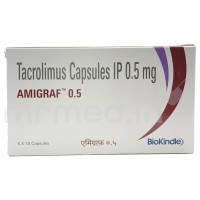
-200x200.jpg)
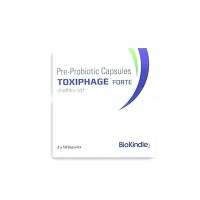
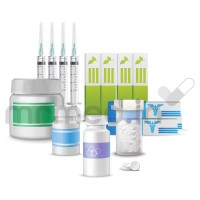
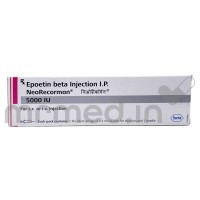
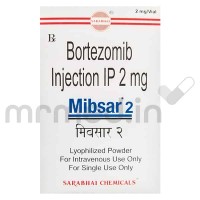
-200x200.jpg)
-200x200.jpg)